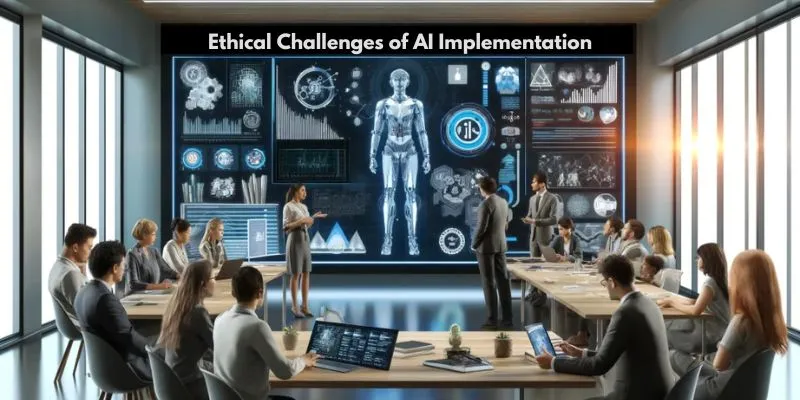Artificial intelligence (AI) is no longer simply a sci-fi movie notion; it is a disruptive force that is changing businesses, reinventing workflows, and improving how humans interact with technology. From chatbots to advanced machine learning algorithms, artificial intelligence is making processes smarter, faster, and more efficient. Professionals can play a significant role here, and training programs like the Artificial Intelligence Course in Chennai can help individuals gain the expertise to build accountable systems. Let’s explore some of the significant ethical dilemmas posed by AI implementation and discuss why they matter in today’s world.
Bias in AI Systems
AI systems are trained using large datasets, but these datasets often carry biases—unintended or otherwise—that influence the outcomes. For example, an AI used for hiring might unfairly favor one group over another if trained on biased historical hiring data.
Privacy Concerns
AI thrives on data, often requiring massive amounts of personal information to function effectively. This creates a tension between innovation and individual privacy. For companies implementing AI, the focus should be on building trust with users by ensuring data protection and adopting transparent data collection policies. Regulators and AI developers alike must work together to enforce privacy standards.
Job Displacement
While AI creates new opportunities, it also poses a threat to traditional jobs. Automation powered by AI is replacing roles in sectors like manufacturing, customer service, and even journalism. While some argue that AI will lead to the creation of more advanced jobs, the reality is that not all workers can transition seamlessly into new roles.
If you’re looking to future-proof your career, taking courses such as a Power BI Course in Chennai can help you gain data visualization skills, which are in high demand in the AI era.
Accountability and Transparency
Who is accountable if an AI system makes a mistake? This is one of the most complex ethical dilemmas surrounding AI. For eg, if a self-driving car causes an accident, should the blame fall on the manufacturer, the software developer, or the user?
Such situations demand clear accountability frameworks. Developers & policymakers need to ensure that AI systems are transparent, explainable, and auditable to avoid misuse and confusion.
Weaponization of AI
AI’s potential for misuse is a growing concern, particularly in warfare. Autonomous weapons or surveillance systems powered by AI could lead to unintended consequences, including civilian harm and ethical breaches in international law.
Preventing the misuse of AI technologies requires global cooperation and stringent regulations. Ethical AI research is crucial to balancing innovation with security concerns.
Dependence on AI
The convenience of AI can sometimes lead to over-dependence. From everyday tasks like navigation to critical decisions in healthcare and finance, AI is becoming a crutch rather than a tool. Over-reliance could result in a lack of critical thinking or decision-making skills among users.
To counteract this, AI education must stress human oversight and decision-making as integral components of AI workflows. Courses like the Power BI Course in Bangalore can teach how to blend human judgment with AI-driven analytics for balanced decision-making.
Lack of Regulation
AI’s rapid growth has outpaced the development of comprehensive regulations, creating a gap in governance. Without proper guidelines, companies might prioritize profit over ethics, potentially harming consumers and society.
To address this, governments and international bodies must collaborate to create robust AI policies. Developers and business leaders should stay informed about evolving AI regulations to ensure compliance and ethical practice.
Striking the Right Balance
It has the potential to solve some of the world’s biggest challenges, from climate change to healthcare disparities. However, these benefits must not come at the cost of ethical violations. As we continue to innovate, it’s essential to strike a balance between progress and responsibility.
The ethical challenges of AI implementation are complex but not insurmountable. By focusing on transparency, fairness, and accountability, we can create AI systems that serve humanity without compromising ethics. Whether you’re a business leader, developer, or enthusiast, understanding these ethical dilemmas is the first step toward responsible AI adoption.
Taking a deep dive into AI through structured learning, like an Artificial Intelligence Course in Bangalore, can empower you to be part of the solution. Together, we can shape a future where AI is a force for good, transforming industries while respecting the values that make us human.
Also Check: What Are The Uses of Artificial Intelligence?

